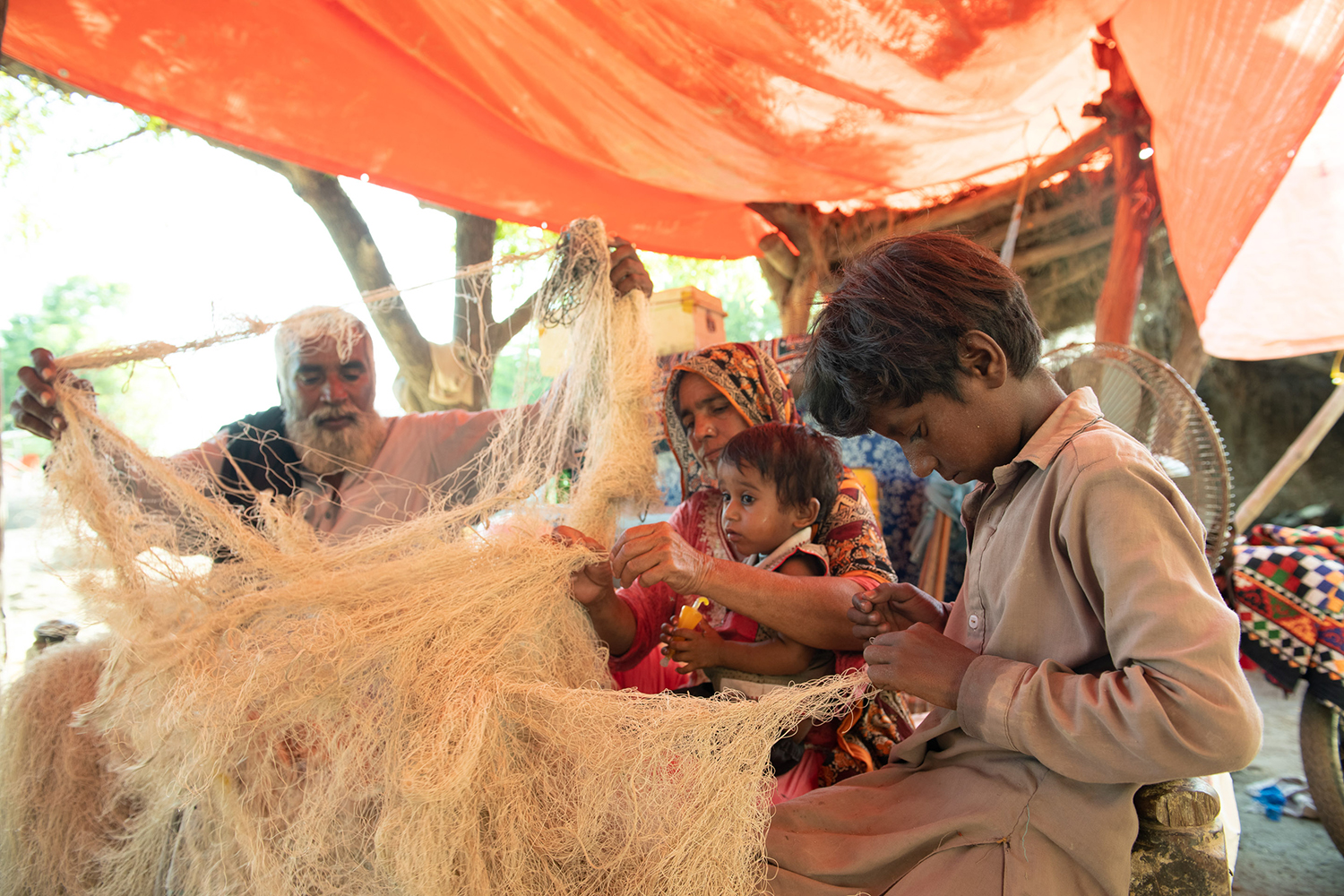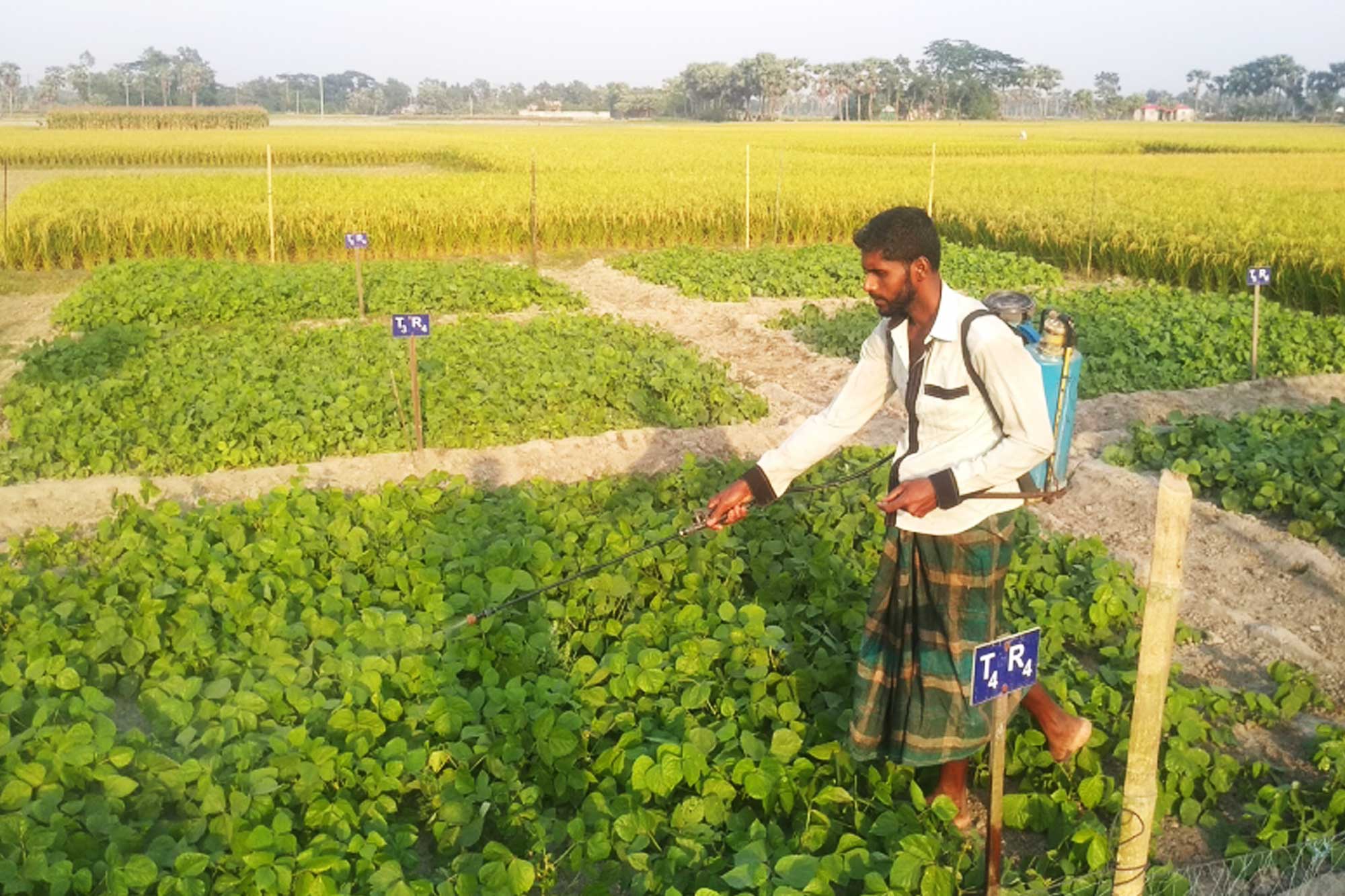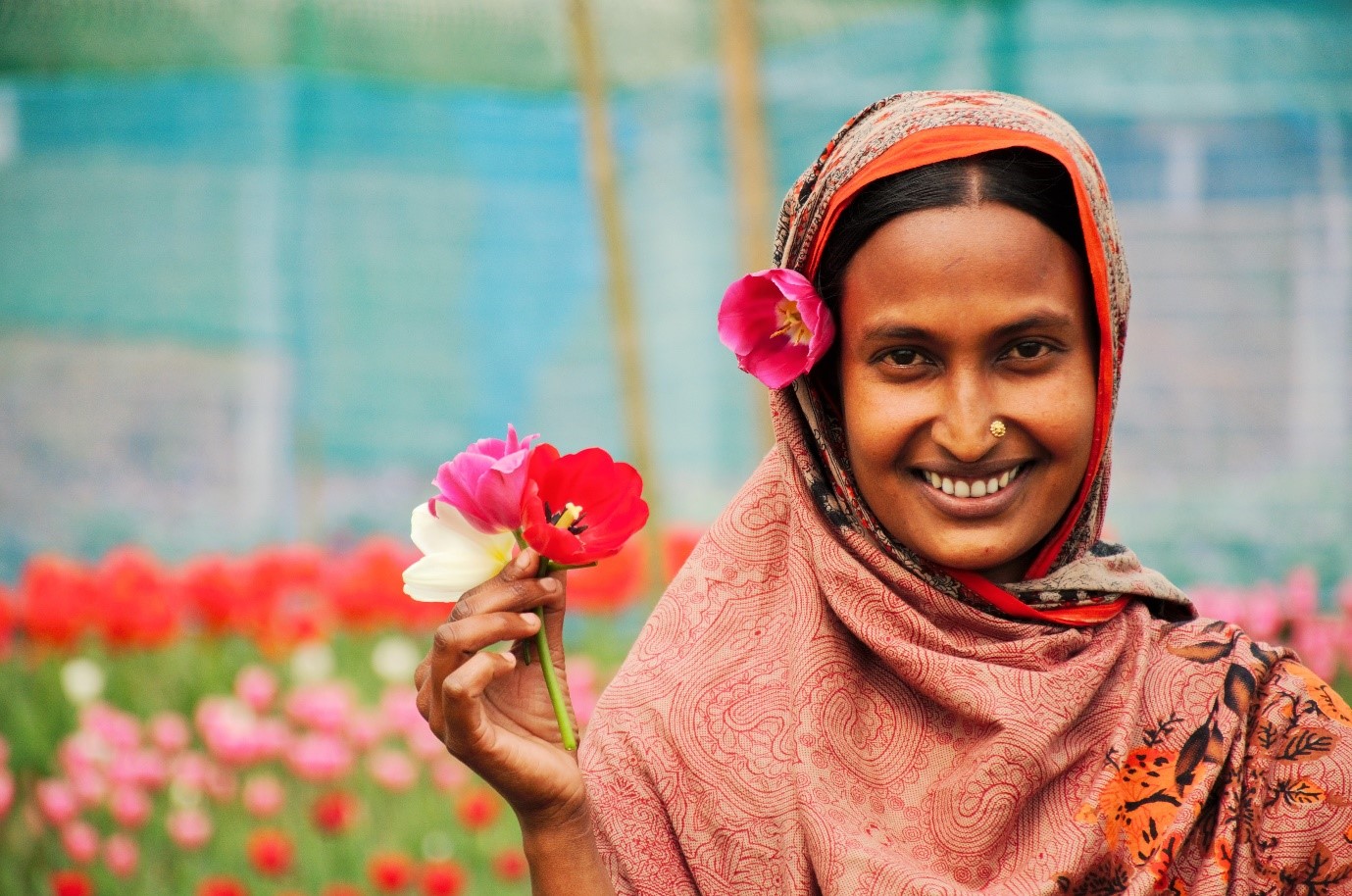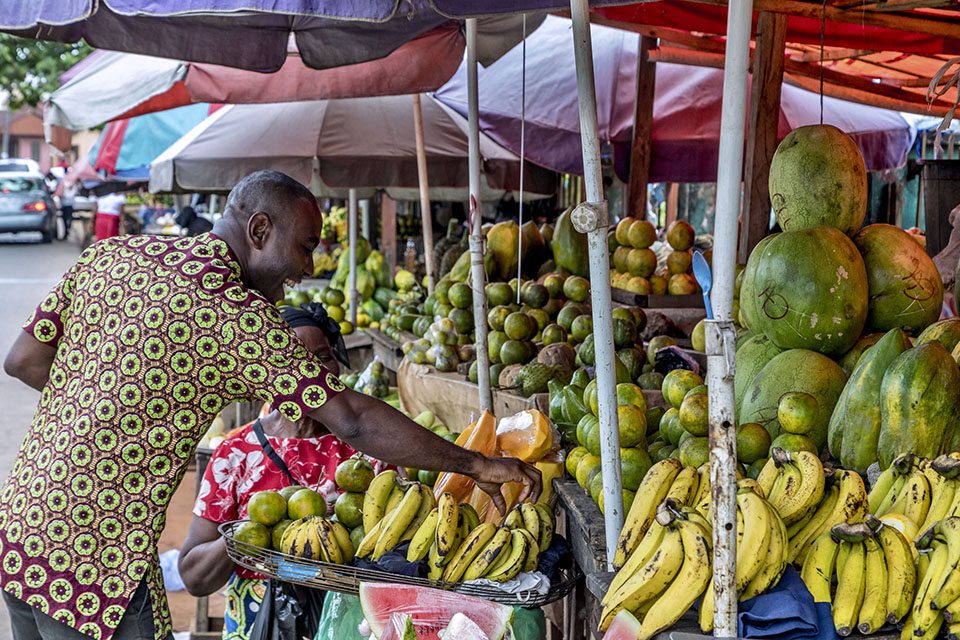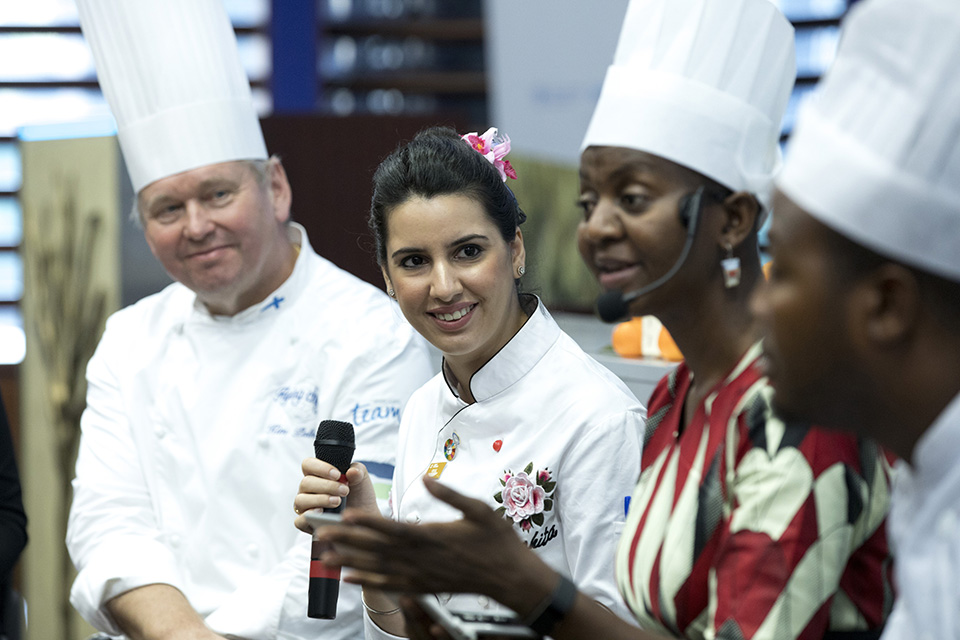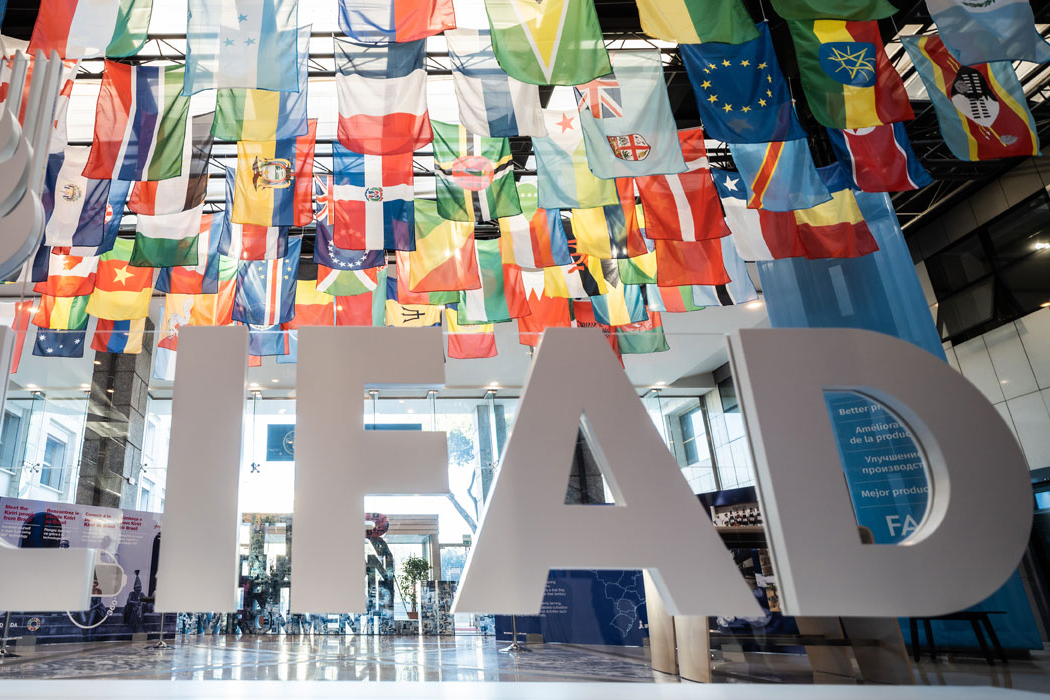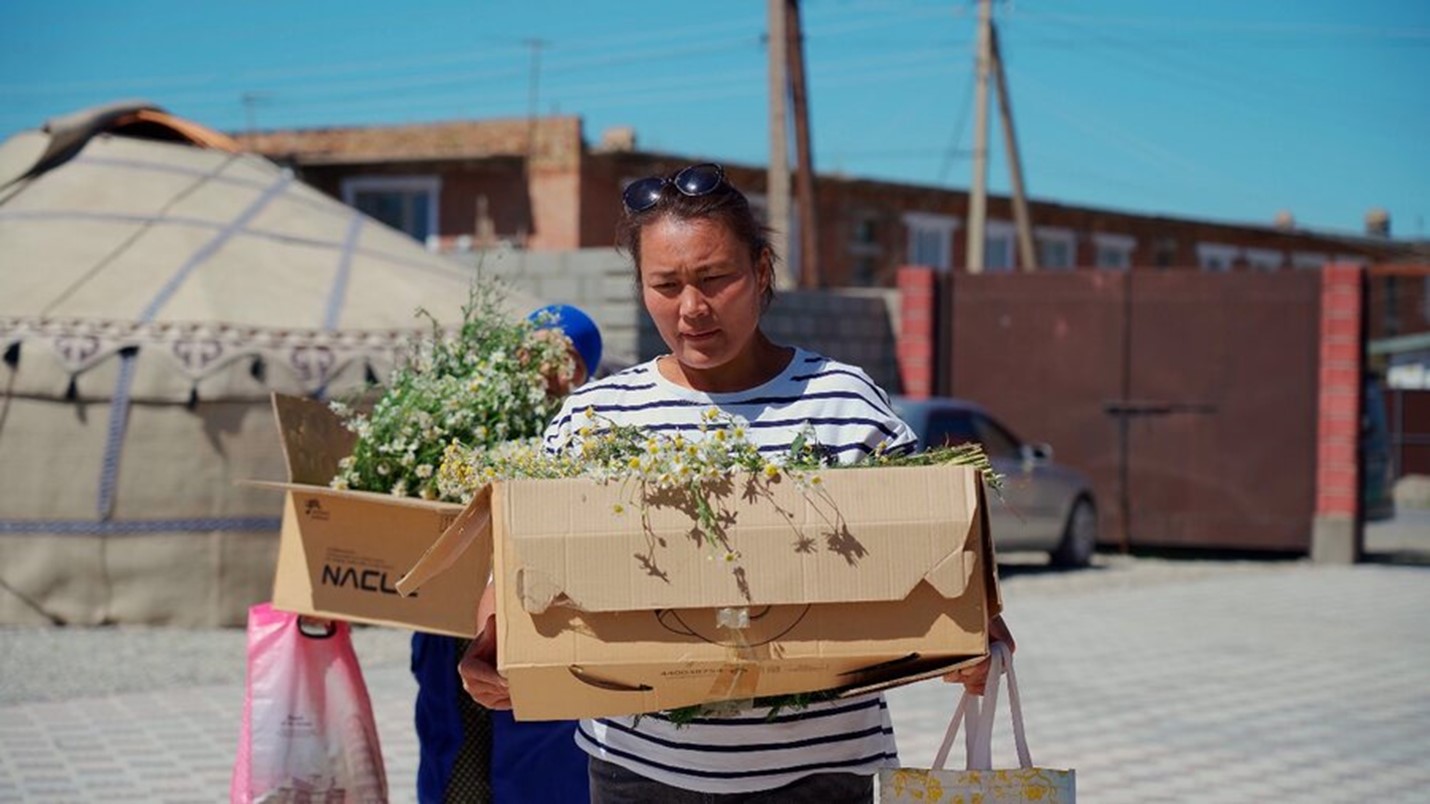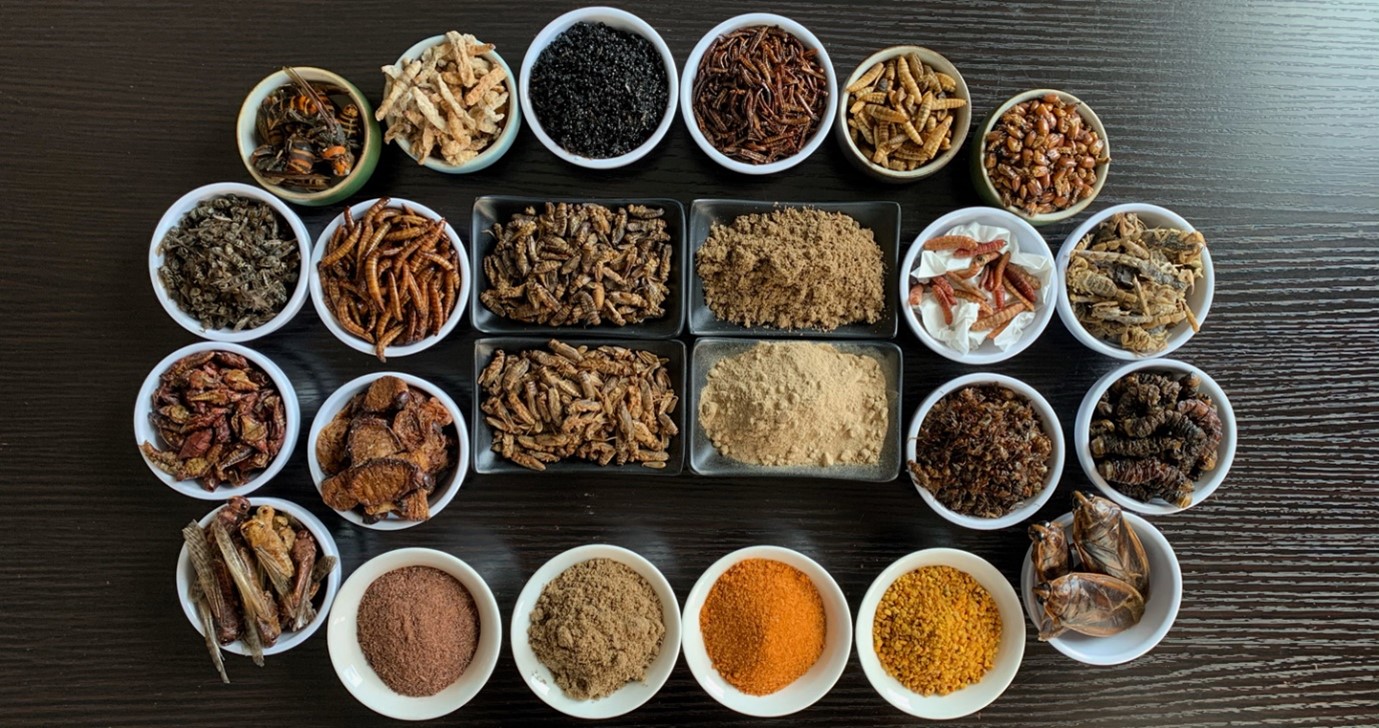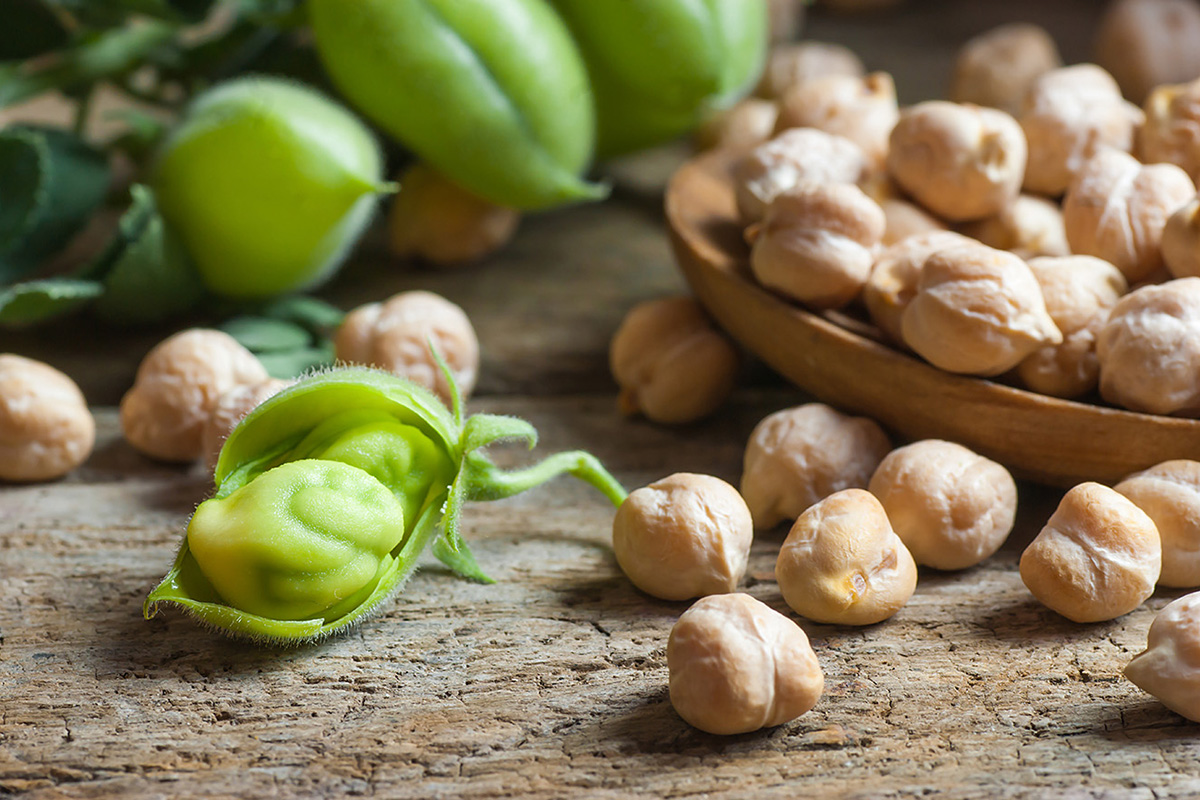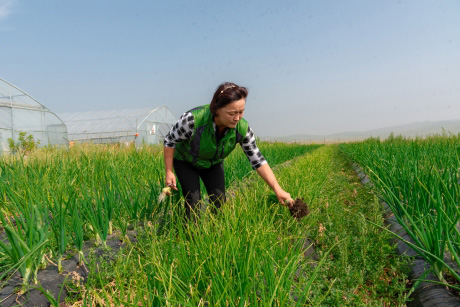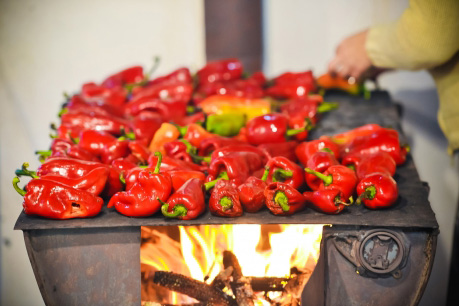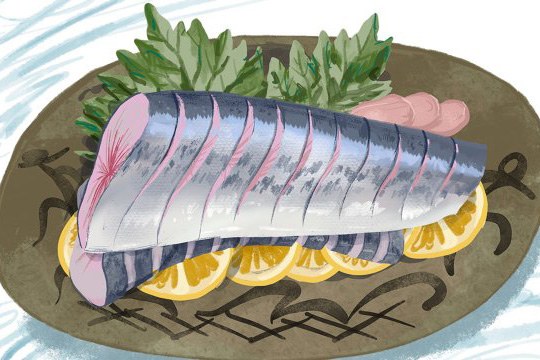Climate anxiety grips fishermen in Pakistan
Muhammad Kasim, his wife, and eldest son repair fish nets damaged during the recent floods. “We come from a family of fishermen. Fishing is in our blood – it is my badge of honour. It’s also our only source of income,” said Kasim. His lifelong profession and source of income for his large family is now in jeopardy until waters recede and ecological balance is restored. Income from fishing heavily depends on the season. As the floods struck during peak fishing season, local fishermen will have to seek other options to put food on the table. In 2022, the Government of Pakistan launched the “Living Indus” initiative to restore the river’s ecosystem, so the Indus basin can become resilient to climate change.

